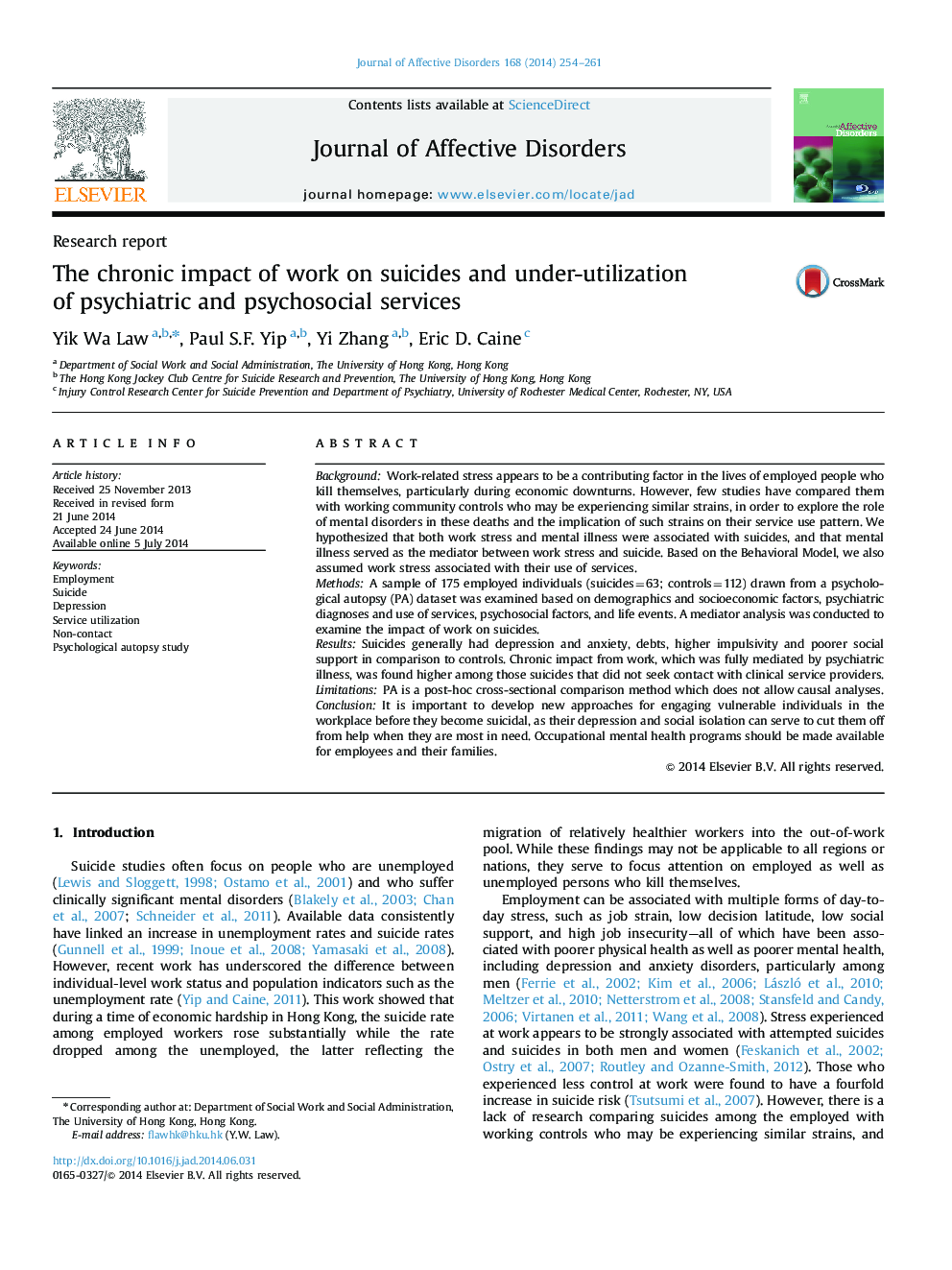| Article ID | Journal | Published Year | Pages | File Type |
|---|---|---|---|---|
| 6232809 | Journal of Affective Disorders | 2014 | 8 Pages |
BackgroundWork-related stress appears to be a contributing factor in the lives of employed people who kill themselves, particularly during economic downturns. However, few studies have compared them with working community controls who may be experiencing similar strains, in order to explore the role of mental disorders in these deaths and the implication of such strains on their service use pattern. We hypothesized that both work stress and mental illness were associated with suicides, and that mental illness served as the mediator between work stress and suicide. Based on the Behavioral Model, we also assumed work stress associated with their use of services.MethodsA sample of 175 employed individuals (suicides=63; controls=112) drawn from a psychological autopsy (PA) dataset was examined based on demographics and socioeconomic factors, psychiatric diagnoses and use of services, psychosocial factors, and life events. A mediator analysis was conducted to examine the impact of work on suicides.ResultsSuicides generally had depression and anxiety, debts, higher impulsivity and poorer social support in comparison to controls. Chronic impact from work, which was fully mediated by psychiatric illness, was found higher among those suicides that did not seek contact with clinical service providers.LimitationsPA is a post-hoc cross-sectional comparison method which does not allow causal analyses.ConclusionIt is important to develop new approaches for engaging vulnerable individuals in the workplace before they become suicidal, as their depression and social isolation can serve to cut them off from help when they are most in need. Occupational mental health programs should be made available for employees and their families.
